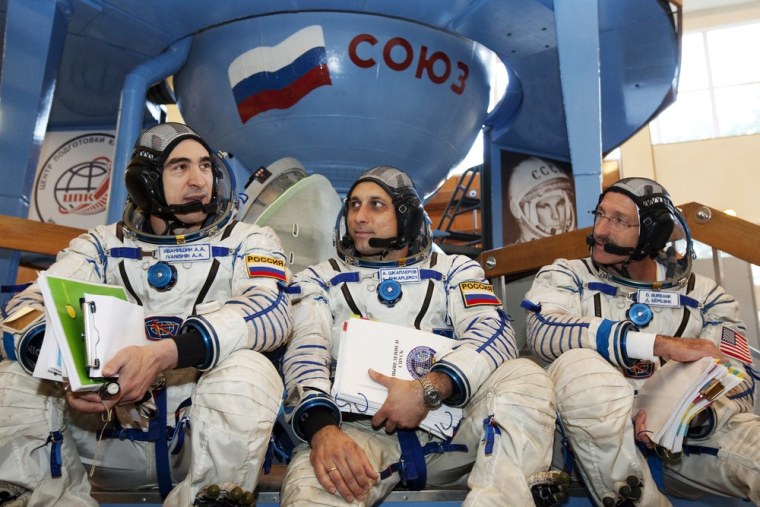The crash of an unmanned Russian supply ship bound for the International Space Station last month was caused by a manufacturing flaw, the country's space agency said Thursday.
The flaw led to the failure of a gas generator of the Soyuz rocket's third-stage engine minutes after launch, the agency said in a statement. A government panel investigating the Aug. 24 crash concluded that the manufacturing flaw was "accidental."
The space agency added that all similar rocket engines will be checked. The panel also recommended tightening quality controls at the rocket-manufacturing plant, including the introduction of surveillance cameras.
The space agency said further Soyuz launches will proceed depending on the engines' condition, but gave no specific schedule.
With NASA's space shuttles retired as of July, the Soyuz system is the only means of getting astronauts to and from the space station. The Soyuz rocket that failed last month is similar to the ones used to launch astronauts to the station.
NASA said the space station — continuously manned for nearly 11 years — will need to be abandoned temporarily if a new crew cannot be launched before the last of the station's six residents fly back to Earth in mid-November.
NASA said Thursday it had been following the Russian investigation.
"They are sharing their data with us, and we are assessing the data ourselves," NASA spokesman Michael Curie said. "This is an ongoing process, and finding the cause is the beginning step. We look forward to working with our Russian colleagues to fully understand what happened and take the corrective actions necessary to ensure the safe continuation of flights to the International Space Station."
